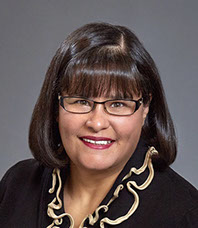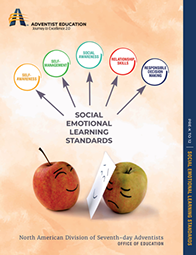

T
oday's students are growing up in a digital world that is very different from your or my generation. For some of us, Facebook, Snapchat, Instagram, and TikTok were not part of our vocabulary during our school years. Social media is a central part of today’s generation’s social life. They practically eat, sleep, and breathe social media. Educators often observe the impact social media has on their students' confidence, focus, and emotional well-being. To better support the students in your classroom, consider the following thoughts.
challenge
Evelyn Sullivan, M.Ed.
Director of Early Childhood Education and R.E.A.C.H.

How Social Media Can Impact Learning
Screen time and social media can have a significant impact on children’s well-being, attention, and sleep patterns. Often, parents may not realize that their child spends a lot of time on their phone after bedtime. Late-night screen time can interfere with sleep, potentially decreasing concentration in class. Tired students might lack motivation for schoolwork and seem disconnected from their lessons. To address this, encourage parents to create device-free zones (such as meal areas and bedrooms) and device-free times (like before bed or during family activities). Promoting classroom discussions about healthy screen habits and the importance of maintaining a digital balance can help students make better choices.
Since students spend a significant portion of their day at school, teachers have a valuable opportunity to help students develop resilience and self-awareness in the digital world. Incorporating the North American Division’s Social-Emotional Learning (SEL) standards into everyday teaching can create a meaningful impact. SEL should not be a separate subject but integrated into all classroom activities.
Here are a couple of examples:
Social media can pose significant emotional challenges for children of all ages. The constant reminder of others' successes can lead to anxiety, jealousy, and a false sense of self-worth. Many children and teenagers feel pressured to post perfect content, which can result in unhealthy comparisons and insecurity.
Teachers may observe these issues as low participation, irritability, or withdrawal in the classroom. Additionally, cyberbullying can extend beyond school hours, making it hard for students to find relief or recover. Schools should establish clear, enforceable cyberbullying policies that define unacceptable behaviors, outline the reporting process, and specify the consequences. These policies need to apply to both in-school and online conduct. As a result, educators often become first responders when these challenges occur in the classroom.
When needed, work with school counselors and parents to address patterns of distress related to social media use.
Language Arts is a great subject to include and promote open, respectful conversations about social media because it naturally emphasizes communication, critical thinking, and expression.
Bible and Social Studies are powerful subjects for incorporating activities that foster empathy, kindness, and respect — both online and offline.
You can empower your students to develop healthy relationships with technology — and with themselves. The classroom should be a safe space for teaching not only spiritual and academic subjects but also the social-emotional and ethical skills needed to thrive in a complex, interconnected world.
By building trust and awareness, you can help students see that their online lives are just one part of their overall identity — not the complete picture of who they are. Keep in mind that social media is here to stay, and it affects the mental health of today’s students in complex ways. For educators, the first step in offering support is to raise awareness. We challenge you to motivate students to develop balanced, informed, and responsible digital habits.
Screen Time
Building Resilience and Self-awareness
Emotional Challenges
We Challenge You
Winter 2025

